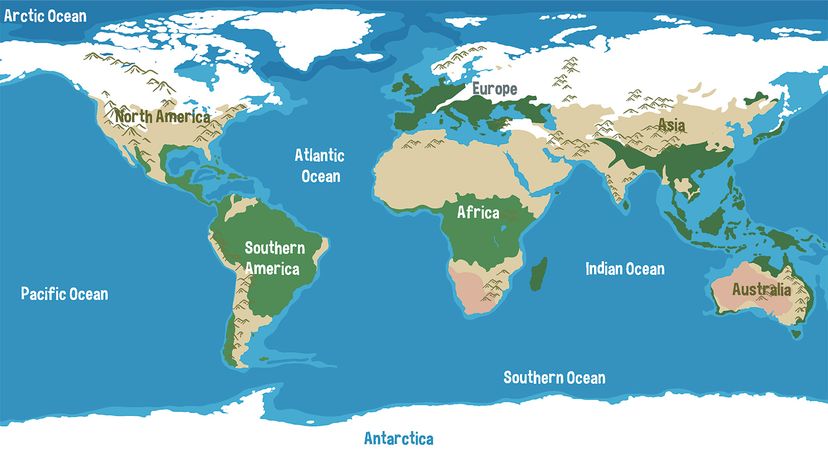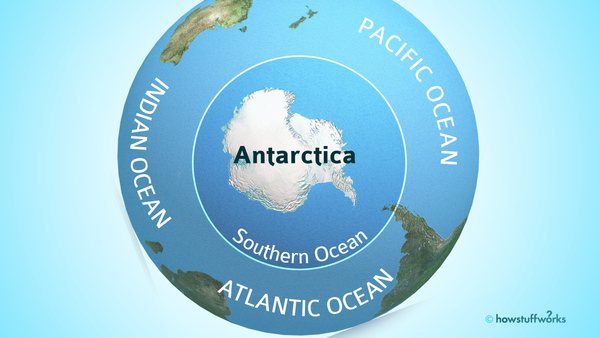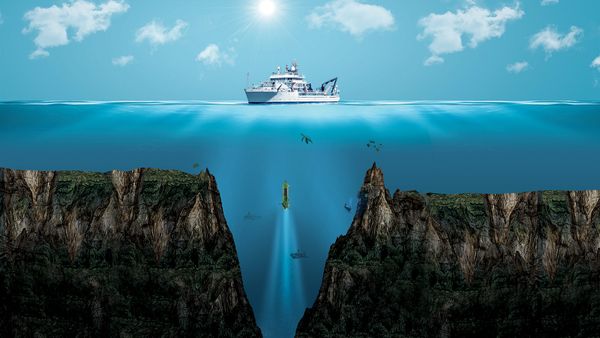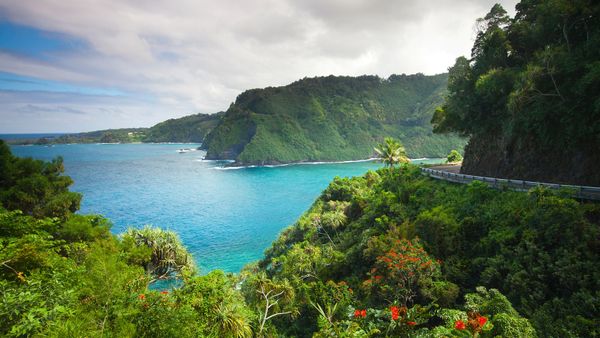All the oceans are pretty similar; after all, they're all the same body of water. However, subtle differences in temperature, salinity and density exist between the oceans.
For instance, the Atlantic Ocean is slightly saltier than the Pacific, due to a dizzying number of factors, from the way the water cycle works to the effects of hydrothermal vents.
Pacific Ocean
The Pacific Ocean is the largest and deepest of the five oceans, its waters covering more than 30 percent of the globe and holding more than half of the world's above-ground water.
The Pacific covers 60 million square miles (155 million square kilometers), which is larger than the area of all the continents combined. Challenger Deep, the deepest spot in any ocean anywhere on Earth, is in the Pacific Ocean's ultra deep Mariana Trench.
Ferdinand Magellan named the Pacific Ocean in 1520 when he sailed through a particularly peaceful corner of the ocean and named it for its tranquil waters.
Truth is, the Pacific stirs up some of the most ferocious storms on the planet and is home to the "Ring of Fire," the most seismically and volcanically active spot in the world.
Atlantic Ocean
The Atlantic Ocean is the second largest ocean in the world. With an area of about 41 million square miles (106,460,000 square kilometers), it covers about 23 percent of the Earth's surface.
The Atlantic is much wider in some spots than others — in parts it is around 3,000 miles (4,800 kilometers) wide, but between Brazil and Liberia it's only 1,770 miles (2,850 kilometers) wide. This narrowing and widening gives the Atlantic a distinctive "S" shape.
Along its margins, the Atlantic has several marginal seas that open into it. The Hudson Bay, the Caribbean Sea, the Mediterranean Sea and the English Channel are all shallow seas that feed into the Atlantic Ocean.
Indian Ocean
With an area of 27,243,000 square miles (70,560,000 square kilometers), the Indian Ocean is the third largest ocean and the only one enclosed on three sides. Bordered by Africa, Asia and Australia, the Indian Ocean opens to the Southern Ocean, where it exchanges waters with the much colder body of water.
In fact, there is no agreement among cartographers about exactly where the Indian Ocean ends and the Southern ocean begins, but it's generally considered to be around the latitude 60 degrees S.
Because much of the Indian Ocean sits around the equator, it has the warmest ocean temperatures of any ocean.
Southern Ocean
The Southern Ocean, also known as the Antarctic Ocean, is the fourth largest ocean in the world, as well as the fifth ocean to be recognized. It has a total area of 7,848,300 square miles (20,327,000 square kilometers), and it has the greatest average depth of any ocean, with very few shallow areas.
Unlike most oceans, a current separates the Southern Ocean from its neighbors, rather than landmasses.
The Antarctic Circumpolar Current (ACC) is the strongest ocean current on the planet, carrying up to 182 million cubic meters of water every second. Spinning from west to east around the continent of Antarctica, its flow separates the Southern Ocean from the saltier waters of the Atlantic, Pacific and Indian, carrying more than 100 times the flow of all the rivers on Earth.
Arctic Ocean
The Arctic Ocean is a tiny, shallow ocean, compared to its giant friends. At 5,427,000 square miles (14,056,000 square kilometers), it accounts for about 4 percent of the Earth's surface area. The Arctic Ocean is the coldest of all the oceans, mostly because a large portion of it remains covered in ice year-round.
Starting in the 15th century, the Arctic Ocean was a hot spot for sea exploration, as European explorers and merchants were eager to find a northern sea route between the Atlantic and Pacific Oceans so they could more easily trade with Asia.
Many expeditions ended in disaster, but in 1906 the Norwegian explorer Roald Amundsen picked his way from the Atlantic to the Pacific by way of the Northwest Passage.
This article was updated in conjunction with AI technology, then fact-checked and edited by a HowStuffWorks editor.



